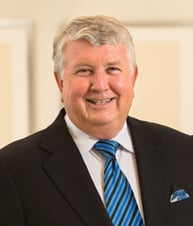
Alston & Bird to Form Coalition to Participate in Unclaimed Property Law Reform Efforts by the Uniform Law Commission and American Bar Association
In January 2013, the Uniform Law Commission (ULC)[1] authorized the appointment of a new Study Committee on Revision of or Amendments to the Uniform Unclaimed Property Act (the “Study Committee”) to explore revising or amending the Uniform Unclaimed Property Act (the “Uniform Act”). The ULC originally promulgated the Uniform Act in 1981 to replace the Uniform Disposition of Unclaimed Property Act (1954/1966). The 1981 Uniform Act was substantially updated in 1995, and most states have adopted one of the two versions of the Uniform Act. In addition, courts, unclaimed property administrators and holders alike have relied extensively on the Official Comments to both versions of the Uniform Act in interpreting their statutory provisions. Since the 1995 update, however, the ULC has not made any revisions to the Uniform Acts or the accompanying comments.
Unfortunately, in recent years, the Uniform Acts (and the specific state unclaimed property laws that are based on them) have become increasingly burdensome to holders of unclaimed property, while at the same time straying from the original purposes and principles of custodial escheat laws. In particular, the Uniform Acts lack crucial aspects of due process, such as meaningful statutes of limitations, clear procedures for appealing decisions of administrators and reasonable burdens of proof in favor of holders. The Uniform Acts also depart from the consumer protection purpose underlying unclaimed property laws by requiring the escheat of property potentially owed by one business association to another in the course of their commercial dealings, for example. Moreover, the Uniform Acts currently depart from the derivative rights doctrine—which is the principle underpinning all custodial unclaimed property laws that treats the state, through the operation of its unclaimed property law, as “standing in the shoes” of the missing owner of the property—in several important respects. For example, the Uniform Acts require the escheat in cash of unredeemed balances on gift certificates that are by their terms redeemable solely for merchandise or services. The Uniform Acts are also sometimes applied by state administrators to attempt to reach merchandise return credits that are redeemable solely for merchandise or services, nonrefundable unused tickets or other admissions and other nonrefundable prepayments for goods and services for which owners have no right to demand and receive any payment of cash, despite the fact that no amounts are “due and payable” to the owner with respect to such property types.
In addition, the Uniform Acts contain anti-limitations provisions requiring property to be reported to a state, notwithstanding the fact that the owner’s right to claim such property has expired pursuant to a binding contract. The Official Commentary accompanying the 1981 and 1995 Uniform Acts indicates that such provisions were intended to avoid situations in which holders unilaterally seek to impose contractual provisions limiting owners’ rights to claim property with the specific purpose and intent of avoiding the appropriate application of unclaimed property laws (i.e., “private escheat”), which is contrary to the public policies underlying such laws. However, because these anti-limitations provisions of the Uniform Acts are not expressly limited to “private escheat” situations, states have frequently sought to apply them to override contractual provisions entered into by businesses for valid and entirely lawful business reasons. The application of such anti-limitations provisions to permit states to assert claims for property in circumstances where the actual owners of the property could not is again contrary to the derivative rights doctrine. Instead, the application of these provisions should be limited to situations in which the contractual limitations on owners’ rights to claim property are imposed for the specific purpose of avoiding the application of unclaimed property laws, thereby effecting a private escheat.
In addition, as the ULC has acknowledged, numerous technological developments, changes in business practices and new property types have arisen in the 18 years since the 1995 Uniform Act was promulgated—yet more states have adopted the 1981 Uniform Act, which is now more than 30 years old. It is clear that a revision to or rewrite of the Uniform Acts is long overdue.
The specific task of the Study Committee, according to the ULC, is to “gather information and viewpoints from a broad assemblage of interested persons and organizations, to evaluate the input, and to report to the [ULC’s] Executive Committee its recommendations as to whether drafting should be undertaken and, if so, the outlines of a desirable uniform or model act.” Accordingly, participation in the proceedings of the Study Committee presents a unique opportunity for members of the business community to influence and shape the next iteration of the Uniform Act, whether it takes the form of an update to the 1995 version of the Uniform Act or a complete rewrite.
The Study Committee has scheduled a meeting for stakeholders (i.e., interested observers to whom the Study Committee has extended an invitation to participate) on April 24, 2013, in Washington, D.C. to help it further “evaluate the desirability and feasibility of a uniform law revising the current provisions of UUPA.”[2] The Study Committee is interested in stakeholders’ “views on the prospects for enactment of such a law.” In particular, the Study Committee has developed a list of topics to be discussed, including the following:
- the aspects of the Uniform Acts that need to be revised consistent with recent federal and state legislation and
judicial decisions; - ways to make the reporting requirements in the Uniform Acts more efficient;
- whether the abandonment periods should be reviewed and revised;
- whether there are categories of property that can be better or more clearly addressed;
- the impact of technological advancements or industry practices on the Uniform Acts; and
- other potential improvements to the Uniform Acts.
Following this meeting, the Study Committee will develop a final recommendation to the ULC Scope and Program Committee concerning whether to move forward to form a drafting committee and, if so, the topics that should be included in the drafting project. According to the Study Committee, such a recommendation would be considered by the Scope and Program Committee (as well as the ULC Executive Committee) in July 2013. The goal would be to have a draft ready for initial consideration at the ULC’s 2014 annual meeting and a draft for final adoption at the 2015 annual meeting.
The ULC is undertaking this effort at least in part in response to a parallel project to update state unclaimed property laws that has been initiated by the Unclaimed Property Subcommittee of the Business Law Section of the American Bar Association (the “ABA Unclaimed Property Subcommittee”). Chaired by Ethan Millar of the Alston & Bird Unclaimed Property Team, the ABA Unclaimed Property Subcommittee is in the process of developing a Model Unclaimed Property Act, the provisions of which would ultimately be recommended to state legislatures to modernize and improve existing state unclaimed property laws.
Recognizing the importance of this opportunity for holders to provide input to two major organizational efforts to rewrite state unclaimed and abandoned property laws, Alston & Bird’s Unclaimed Property Team is forming a coalition to participate in the ULC Study Committee’s proceedings and provide holder input to the ABA Unclaimed Property Subcommittee’s Model Act initiative. It is envisioned that the coalition’s role in such proceedings would entail not only advocating for, but also actively drafting, specific amendments or revisions to the Uniform Acts and proposed Model Unclaimed Property Act. The Alston & Bird Unclaimed Property Team is currently in the process of drafting a formal mission statement and proposed strategic goals—stay tuned for further developments. In the meantime, please contact any member of our team for more details regarding the ULC’s Uniform Act update project, the ABA Unclaimed Property Subcommittee Model Act project or the Alston & Bird coalition.
To receive future State & Local Tax Advisories electronically, visit our Publications Sign-Up page.
[1] The ULC, previously known as the National Conference of Commissioners on Uniform State Laws, was formed in 1892 “to promote uniformity in the law among the several States on subjects as to which uniformity is desirable an practicable.”
[2] Notably, the National Association of Unclaimed Property Administrators (NAUPA) has resolved to participate with the ULC in the process of amending or revising the Uniform Acts.




